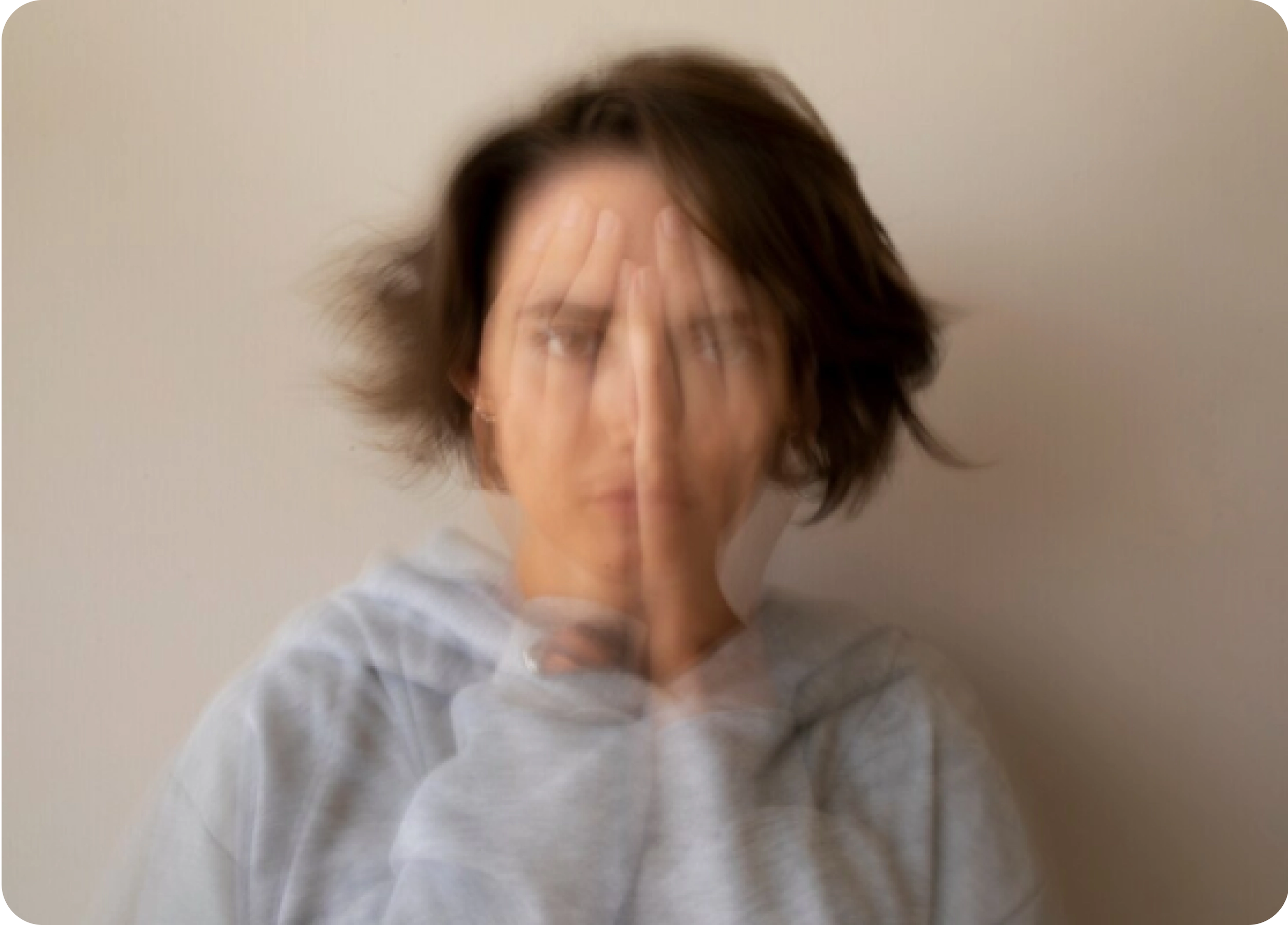Schizophrenia: Types, Causes, Symptoms, and Treatment

Seeking info about schizophrenia disorders?
Check out our comprehensive guide or reach out to us for more questions!

Understanding Schizophrenia
Schizophrenia disorders cause profound disruption in thinking, emotions, and behaviors that interfere with functioning. This complex psychiatric illness affects many people, emerging most often in the late teen years through the mid-20s. Men tend to develop schizophrenia earlier than women.While no medical cure exists, schizophrenia is highly treatable. With an individualized approach, compassionate support, and the latest advancements in care, most people can achieve long periods of remission from acute symptoms and build an enjoyable, purposeful life.

Types of Schizophrenia
Schizophrenia spectrum disorders are classified into subtypes based on the predominant symptoms at diagnosis:
Treatments include medication and electroconvulsive therapy, which can help relieve catatonic episodes.
Read moreThey can develop odd ideas about their anatomy and bodily functions. Antipsychotic medication helps control these disturbing, distorted body perceptions.
Read moreAntipsychotics combined with social skills training can improve daily functioning. Many people show a slow but steady reduction in acute symptoms over time.
Read moreReady for Change?
Contact us today! Take the first step to a wholesome you.

Reclaim Your Joy
Rediscover the joy and peace you deserve with our comprehensive mental health support. No matter the challenge you're dealing with, we are here to offer you the compassion and expertise you need to navigate your path to recovery.
Reach out to us today for a compassionate consultation, and take the first step towards reclaiming your happiness.

What Causes Schizophrenia?
The exact causes remain unclear, but research suggests a combination of genetic, biological, environmental, and psychological factors work together to trigger schizophrenia.
Evidence points to:
Genetics
Having a close family member with schizophrenia increases risk. Certain gene variations may make people more vulnerable.
Brain Chemistry
An imbalance in neurotransmitters like dopamine and glutamate may play a role.
Prenatal Factors
Viral infections, malnutrition, or stress during pregnancy may influence development.
Childhood Trauma
Abuse, neglect, loss of a parent, and other adversity increase risk, especially when no support is available. Trauma fuels many mental disorders.
Drug Use
Psychedelic drugs, marijuana and methamphetamines all can trigger psychotic episodes.
While schizophrenia cannot be prevented, early intervention when symptoms first appear may help reduce the severity and long-term impact.

Signs and Symptoms of Schizophrenia
Schizophrenia causes a diverse range of symptoms that impair thinking, emotions, perceptions, and behaviors. The main signs include:
Hallucinations
Hearing, seeing, feeling, tasting, or smelling things that are not real. Hearing voices is the most common.
Delusions
Fixed false beliefs not based on reality. For example, delusions of persecution, grandeur, mind control, or special powers.
Disorganized Speech
Incoherent speech patterns where ideas rapidly shift between unrelated topics.
Disorganized or Catatonic Behavior
Unpredictable agitation, rigid stillness, lack of response, or excessive purposeless movement.
Diminished Emotional Expression
Unchanged facial expressions and limited range of emotions ("flat affect").
Loss of Motivation
Lack of drive, reduced activities, impaired hygiene/self-care.
Social Withdrawal
Isolating yourself from others
Cognitive Difficulties
Poor concentration, confused thinking, disrupted memory and learning.
Symptoms vary for each person. Stress, drug use, and stopping medication tend to worsen symptoms. With proper treatment, many people experience periods of remission when symptoms become manageable.

Paint a Brighter Future
Your future is in your hands. Take the first step towards a fulfilling life now.

Treatment Options for Schizophrenia
While schizophrenia cannot presently be cured, the many validated treatments available today offer real hope for recovery of a fulfilling, productive life. Through proper medical care, psychosocial support, education, skills training, and lifestyle adaptations, most people can achieve sustained periods of symptom remission and build the ability to independently manage their illness.
Medications
Antipsychotic medications play an indispensable role in controlling acute psychotic episodes and preventing the recurrence of symptoms like hallucinations, delusions, disorganized thinking, and agitated behavior. While the drugs do not eliminate the underlying disease, they allow many people to reliably function at work, school, and in relationships when taken as prescribed. While effective for many, antipsychotics often cause unpleasant and sometimes permanent neurological side effects. Today's newer, second-generation antipsychotics can be equally potent with a lower risk of these extrapyramidal side effects. However, medications should still be carefully monitored, as other side effects can include weight gain, diabetes, and hormonal changes. Working closely with your psychiatrist, you can find the most effective antipsychotic providing maximum benefit with minimal side effects.
Psychoeducation
Education is power when it comes to taking charge of your recovery. Psychoeducation programs teach you and your family all about schizophrenia, its symptoms, evolving treatments, and effective coping methods.
Learning directly from specialists, you gain realistic perspectives on:
- Schizophrenia causes, signs, and course
- The role of medications and therapy
- Developing a treatment plan and partnering with your care team
- Handling stress, symptoms, and medication side effects
- Active lifestyle choices to stay well
- Work, school, and relationship skills
- Setting goals and assessing progress
- Finding community resources and peer support
Psychotherapy
Different forms of psychotherapy complement medication therapy for schizophrenia. Talk therapy provides essential support with the following:
- Cognitive Behavioral Therapy: Cognitive behavioral therapy (CBT) helps you manage residual symptoms, handle stress, and cope with life challenges. You learn to monitor disordered thoughts and replace them with more realistic interpretations. This reduces distress and improves functioning.
- Social Skills Training: This teaches daily living and social interaction skills weakened by schizophrenia and long periods of isolation. With practice, you relearn how to care for yourself, engage in hobbies, return to work or school, and connect socially.
- Motivation and Problem-Solving: Counseling focuses on boosting motivation, activity levels, and follow-through to make progress on personal goals. Together, you and your therapist identify and break down problems into smaller steps.
- Supportive Therapy: Provides a trusting environment to share your experiences and feelings without judgment. This reduces isolation and offers encouragement during recovery's ups and downs.
- Group and Family Therapy: Shared experiences in group settings reduce stigma and provide perspective from others facing similar challenges. Family therapy promotes open communication and understanding.
Rehabilitation and Skills Training
Schizophrenia symptoms and long periods of hospitalization often erode the ability to take care of yourself and function in daily roles. Occupational and skills training helps rebuild weakened capabilities.
- Occupational Therapy: Focuses on self-care activities like hygiene, dressing, household tasks, cooking, and scheduling. You re-establish stability and order in daily routines.
- Cognitive Rehabilitation: Exercises and strategies strengthen short-term memory, concentration, planning, and reasoning weakened by schizophrenia. Practicing cognitive tasks trains your brain to work through challenges with clarity.
- Social and Vocational Training: You learn positive social skills to interact effectively at work, school, and socially. Vocational coaching guides you to set career goals based on strengths and abilities and then develop the needed skills to achieve them.
- Independent Living Skills: From using public transit to managing a budget, you build real-world competencies for maintaining independence and handling issues as they arise.
Other Approaches
While not standalone treatments, certain wellness activities can support recovery when used along with medical care and therapy:
- Exercise and a nutritious diet reduce the risk of obesity, diabetes, heart disease, and other problems that increase stress and psychiatric symptoms. Even mild daily activity lifts mood naturally.
- Stress management techniques like meditation, yoga, deep breathing, and spending time in nature. These provide mental calm and respite from chaotic thoughts.
- Sensory approaches like art, music, or pet therapy provide absorbing, creative outlets to express yourself in a structured way.
- Support groups where sharing stories and wisdom with others facing similar struggles reduces isolation and validates that recovery is possible.
- Limiting alcohol and recreational drug use can impair thinking, trigger psychosis, interfere with medication effects, and cause complications like addiction.
- Integrating wellness habits into your comprehensive care program promotes stability, health, and an inner sense of meaning and purpose.



Schizophrenia Can Be Treated. Learn How Today!
Left untreated, schizophrenia is disastrous. It fuels addiction, homelessness, and can result in becoming a victim of violence or exploitation.
You deserve compassionate, comprehensive care tailored to your unique needs, goals, and dreams. To speak with a treatment advisor about our personalized recovery programs for schizophrenia spectrum disorders, reach out to The Edge Treatment Center today.
With the proper treatment and support, you can overcome this illness, reduce stigma, and build a future filled with possibilities. We will be with you every step of the recovery journey until you feel equipped to manage your health independently.
Have hope – you CAN live a fulfilling, purposeful life.

We’re Here To Help You Find Your Way
Let us lead you through a tailored treatment plan designed for your unique needs.
FAQ
Frequently Asked Questions
The Edge Treatment Center provides comprehensive treatment programs for schizophrenia patients, including medication management, individual and group therapy, social skills training, and family support services.
Currently, there is no cure for schizophrenia. Still, with proper treatment and management, many people with schizophrenia can lead productive lives. Treatment focuses on managing symptoms with antipsychotic medications and psychosocial therapies.
Yes, our facility provides different types of therapy, including cognitive behavioral therapy, social skills training, and family therapy, to help patients better manage their schizophrenia symptoms.
The course of schizophrenia varies by individual. With proper treatment and support, many people can manage symptoms long-term and prevent relapses. However, for some, symptoms may worsen over time, especially if treatment is inconsistent. Regular monitoring by a doctor is important.
We accept most major insurance plans. Our staff can guide you through insurance questions or payment plan options. Call or visit us to find out more.